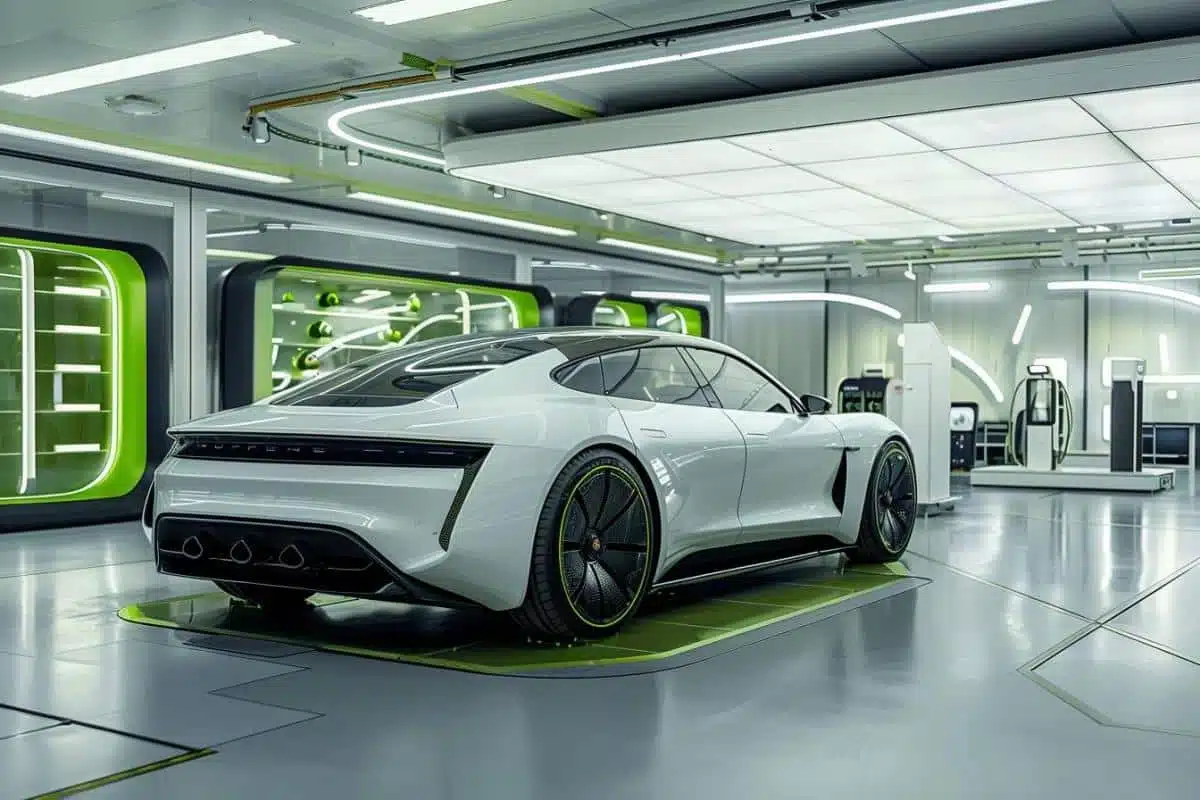“Don’t invest in a hybrid car in 2024 without reading this first (you’ll be surprised)”

Advantages of Hybrid Cars
The question Is it worth investing in a hybrid car ? is best answered when considering the key advantages of these vehicles. Fuel efficiency and long-term savings are two fundamental factors. Hybrid cars combine an internal combustion engine with one or more electric motors, which maximizes fuel efficiency. This translates into lower gasoline expenses and long-term economic savings. They are particularly efficient in urban environments and short trips, where they can operate in electric mode.
SUMMARY:
| Main Ideas | Additional Details |
|---|---|
| 🚗 Fuel Efficiency | Combining combustion and electric engines to maximize fuel efficiency |
| 🌍 Emission Reduction | Emit fewer pollutants, helping to combat climate change |
| 📉 Government Subsidies | Providing tax incentives and discounts to reduce acquisition costs |
| 💲 Maintenance Costs | Being higher due to the complexity of the hybrid system |
| ⚡ Hybrid vs. Electric Comparison | Breaking down initial and maintenance costs and charging infrastructure |
| 🛠️ Mechanical Reliability | Having high reliability and fewer expensive repairs |
Furthermore, the reduction of emissions and environmental benefits are undeniable. Hybrids emit less polluting gases than traditional gasoline or diesel vehicles, contributing to reduced air pollution and climate change. They use the electric motor to start and at low speeds, significantly reducing CO2 emissions.
The government subsidies and tax incentives also play a crucial role in the total cost of a hybrid car. Many governments offer tax incentives, discounts, and grants to encourage the adoption of hybrid vehicles. These incentives may include tax exemptions and reduced fees on tolls and parking, which can significantly lower the acquisition cost.
Disadvantages of Hybrid Cars
On the other hand, the disadvantages must also be considered. The higher initial cost can be a hindrance. Hybrid cars often have a higher starting price due to the hybrid technology they include. Although tax incentives can help reduce this cost, the initial investment remains considerable.
Despite lower fuel costs, the maintenance and repair costs can be higher. The duality of having both an internal combustion engine and an electric system can lead to specific problems that are expensive to repair. Moreover, the limitations in range and power can be an inconvenience. Hybrid cars may have limited range and power compared to high-performance gasoline/diesel vehicles or pure electric cars. Depending on the internal combustion engine for long trips, they may not be suitable for all drivers.
Comparison: Hybrid vs Electric
The comparison between hybrids and electric cars is also fundamental for making an informed decision. In terms of initial and long-term costs, electric cars usually have a higher initial cost but can be more economical in the long run due to lower fuel and maintenance expenses. Hybrids, as an intermediate solution, have a lower initial cost. Likewise, the charging infrastructure and range vary: hybrid cars do not depend as much on charging infrastructure and have greater flexibility.
Regarding the environmental impact and emissions, electric cars produce no exhaust emissions and are more environmentally friendly. Hybrids, although less polluting than gasoline vehicles, still generate emissions when using the combustion engine. If you want to learn more about how electric cars can be a more environmentally friendly option, you can explore this detailed resource on the best electric cars.
Use Cases: Who Should Consider a Hybrid Car ?
The use cases can help determine if a hybrid car is right for you. For urban drivers, hybrids are especially suitable due to their efficiency in dense traffic and their ability to operate in electric mode on short trips. For rural drivers, hybrids can offer benefits in fuel efficiency, although diesel may be more competitive on long trips. The frequency and distance of commutes are also crucial: for daily short commutes, hybrids are advantageous due to savings in fuel and reduced emissions.
Personal preferences and lifestyle also play a role. Sustainability and the reduction of carbon footprint make hybrids attractive to certain consumers. They are also ideal for those seeking lower operating costs and tax incentives. For a broader perspective on electric cars and their challenges compared to gasoline cars, you can visit this comprehensive analysis.
Economic Analysis of Hybrid Cars
Finally, an economic analysis shows that, although hybrids may have a higher initial cost, they offer efficiency and long-term savings. The consumption on highways of hybrids may be similar to that of gasoline cars, which can reduce their efficiency in those environments. However, they are efficient in the city, where they can frequently operate in electric mode. This results in a significant savings in gasoline and a lower environmental impact.
The mechanical reliability is also noteworthy. Hybrids have high mechanical reliability, which reduces the likelihood of costly repairs. Additionally, the battery durability is an important aspect, as, although hybrid batteries usually have extended warranties, their replacement can be expensive. For more details on how electric vehicles are changing the market, check out this in-depth article.
Finally, in the used car market, the demand for hybrid cars is increasing, allowing for more affordable options. This growing demand suggests that investing in hybrids can be profitable in the medium and long term due to savings in fuel and maintenance, in addition to retaining their resale value.
Comparative Chart of Hybrid Cars
| Feature | Hybrid Car | Electric Car | Gasoline Car |
|---|---|---|---|
| Initial Cost | High | Very high | Moderate |
| Operating Costs | Low | Very low | High |
| Emissions | Low | None | High |
| Range | High | Medium | High |
| Flexibility | High | Low | High |
Environmental Impact of Hybrid Cars
Hybrid cars have a reduced environmental impact compared to traditional internal combustion vehicles. They emit fewer pollutants, which is crucial for combating climate change. In urban areas, where air pollution is a serious problem, hybrids operate more efficiently and in electric mode, contributing to cleaner air.
Additionally, stricter environmental regulations or cities adhering to low emission zones can be beneficial for hybrid car owners. Vehicles with ECO label have additional advantages, such as access to restricted areas and tax exemptions. Check this report on the demand for electric vehicles for a more comprehensive view of the environmental impact.
To make an informed decision, it is helpful to know the different levels of environmental certification that hybrid cars can have. Below is a summary table about the different labels and their implications :
| Label | Description | Benefits |
|---|---|---|
| ECO | Hybrid vehicles and low emissions | Access to low emission zones, tax discounts |
| Zero Emissions | Pure electric vehicles | Complete tax exemptions, free access to all areas |
| C | Recent gasoline vehicles | Restricted access to some areas |







